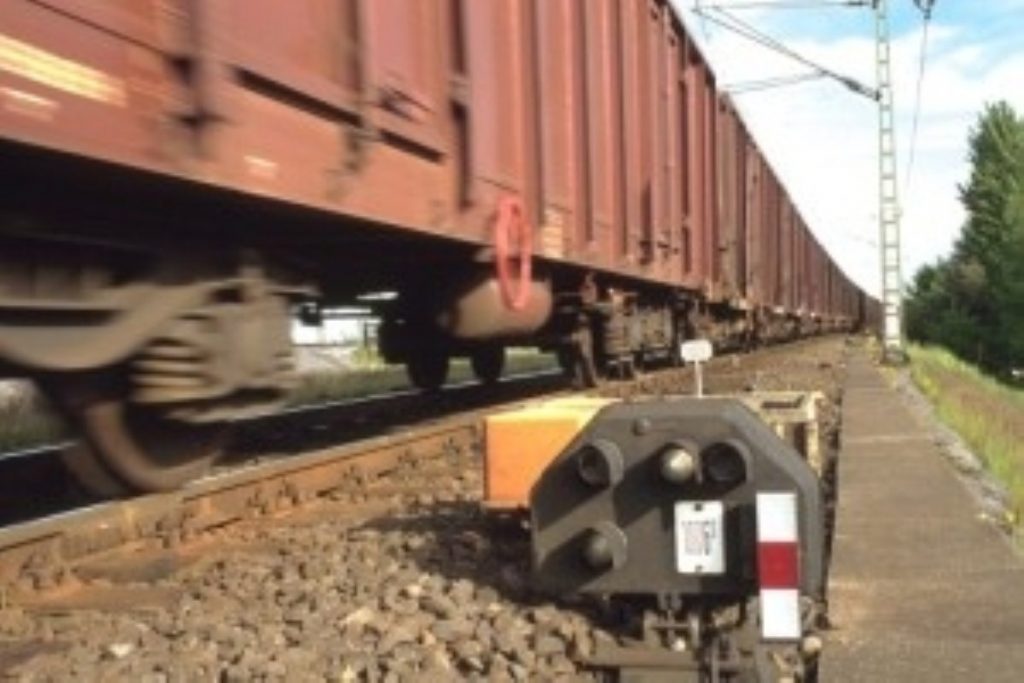British rail capacity like ‘trying to run a motorway up a high street’
By Politics.co.uk staff
The capacity challenge on Britain's rail network was today described as "trying to run a motorway up a high street" by the outgoing chief of Network Rail.
Speaking publicly about HS2 in-depth for the first time, Sir David Higgins said nobody else in the western world runs its railways like the UK does, where high speed, freight and commuter trains all share the same tracks.
His comments came as he shared a platform with government minister Lord Deighton, who he worked with on delivering the London Olympics, and who is now heading up a government taskforce designed to help make HS2 a success.


Lord Deighton underlined the government's commitment, insisting it was 100% behind the project – a point echoed by Labour shadow transport minister Lilian Greenwood, who was among the audience at an event organised by the pro high speed rail group Greengauge 21.
Keith Brown, Scotland's transport minister, called the current plans which include new lines as far north as Manchester and Leeds, a "non-optimal network" that should be extended to Scotland.
The positive messages about HS2 come after a summer in which a number of high profile organisations and figures have questioned the worth of the scheme as estimates of its build costs have risen to £43 billion.
These have included former members of the Labour government which first announced the scheme – Alistair Darling and Lord Mandelson – along with the public accounts committee, the Institute of Directors and the Institute of Economic Affairs.
But today's conference was full of positive buzzwords about HS2 such as "connectivity", "providing capacity" and about the "transformational impact" it would have.
Sir David said the UK was playing "an enormous amount of catch up", adding "it's always much more expensive to play catch up". Crossrail and Thameslink were 20 years too late, he said.
We were "playing catch up due to a generation that dined out on the infrastructure built by the Victorians".
He said the West Coast Main Line was full, citing National Rail's recent decision to refuse Virgin Trains to run additional services between London and Shrewsbury due to lack of capacity, and that lengthening trains and platforms could only provide "incremental" improvements.
The £10 billion spent on upgrading the line was "like refurbishing a Victorian house", he said, pointing out that the alignments, bridges and designs were 170 years old.
And he warned: "If HS2 doesn't happen now, it won't happen again for another generation".
Lord Deighton told the audience that "as a country we had under-invested in our infrastructure for too long." HS2, he said, would be a "spring board for UK wide economic growth" and would benefit those who never set foot on a train.
The world's perception of the UK's ability to deliver large infrastructure projects "changed due to the Olympics" and this opened up opportunities for UK companies worldwide.
Focusing on his current role as head of the HS2 taskforce he said: "We are doing it and we're going to make damn sure we get the most out of it."
Labour's support of HS2 has been interpreted as wobbling in some quarters, particularly after members of the party insisted the cost should not rise about £50 billion.
Lilian Greenwood today attempted to quash that notion insisting that the party was "completely committed to HS2", but added that people were concerned about the budget and that the government needed "to keep a firm grip on that".
Critics of HS2 include former transport secretary Alistair Darling. Keith Brown said of his fellow Scot, who is also an opponent of Scottish independence, that he "can't look at a progressive problem without saying 'no' these days".
Brown said the case for HS2 could have been made better. "What the government should be doing is making the case for the optimal service, that includes Scotland," he said.
This would deliver £24 billion of benefits to Scotland, compared to £3 billion at present where services would continue to Edinburgh and Glasgow on so-called classic-compatible lines – the existing West Coast and East Coast main lines.
A proposal to link Edinburgh and Glasgow with a high-speed line, providing a 30 minute journey time, would be presented to the Scottish government in spring next year, he revealed.
The "transformational" potential of HS2 was heralded by Stephen Hughes, chief executive of Birmingham City Council, citing the impact of the Jubilee Line and the Docklands Light Railway on Canary Wharf – something which was not predicted by the cost-benefit ratios for the projects.
Geoff Inskip, the chief executive of West Midlands passenger transport body Centro, said the new line would create 51,000 jobs in the region, bringing an extra £4.1 billion additional economic activity per year.
Sir Richard Leese, the leader of Manchester City Council, said: "With HS2 we'll get growth. Without HS2 we'll inevitably get the contraction that that lack of capacity will cause."












